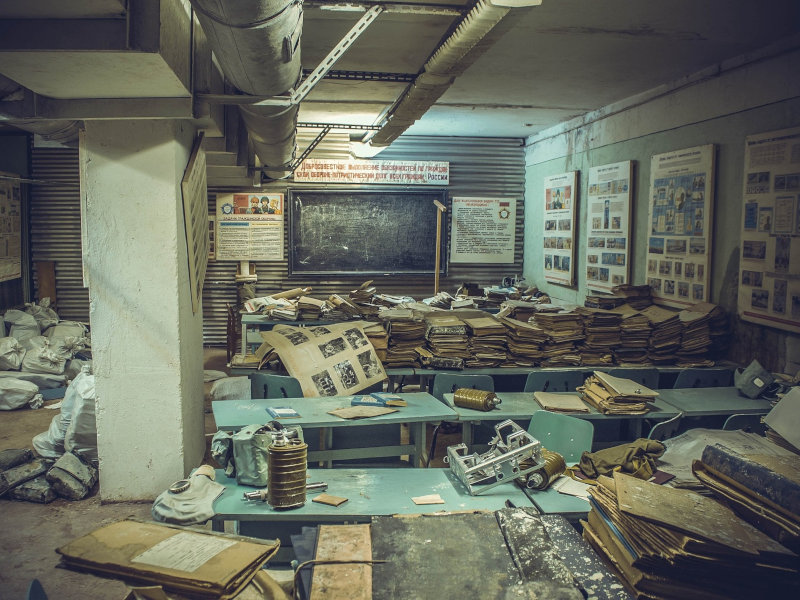SHAPE
Sharing the Pronoun.Extreme violence, social resistance and the shaping of cultural memory in Spanish American contemporary documentary poetry
Overview
SHAPE proposes a new cultural approach to the study of 21st century Spanish American documentary poetry as a form of social and community resistance in the shaping of a shared memory about extreme violence in Latin America.
This is a peculiar type of poetry using in the very body of the poem a variety of ethnographic, historical (archive texts, chronicles), visual, audio-visual, and virtual documents that have not been created by the poet.
The use of those texts in an intimate and non-mimetic code such as poetry determines a stylistic short-circuit that has developed, in different forms, across all Latin America.
In this context, documentary poetry has been commonly used to verbalise the tragic consequences of the systemic institutional and non-institutional forms of violence against women, migrants, indigenous or LGBTQ+ people. In spite of the key social function this poetry has assumed in Latin America in recent years, no comprehensive study has been produced on it yet. SHAPE aims to fill this gap by building a model of interpretation of documentary poetry not only as an aesthetic expression, but also as a powerful tool to preserve and construct social memory about suffering.
To that aim, SHAPE intends to adopt an interdisciplinary methodological approach involving literature, cultural studies, cultural history, and ethnography, in order to investigate how this poetry contributes to the processes of resistance to extreme violence. The aim is to generate a new cross-cultural conceptual reflection on how to view the problem of social and institutional violence in Latin America and how to use literature to resist new forms of racial and social discrimination. The project will be developed in collaboration with Ca’ Foscari University of Venice and the University of North Carolina at Chapel Hill.

Objectives
SHAPE is the first study investigating Spanish American documentary poetry about extreme violence from a cultural point of view. The overall objective is to determine the ability of this poetry to build and preserve social memory about violence by acting as a form of social and political resistance.
To that aim SHAPE will investigates the following specific objectives:
- The ontological status of documentary poetry as a form of engaged art and its political and social function. SHAPE will investigate the relationship between documentary and poetry, as well as the concept of use of factual elements, which determines the artistic dimension of documentary poetry1. Discussing those concepts will be vital to understand the crucial intertextual movement of appropriating and dis-appropriating the voice of the other.
- How this function developed in Spanish America as a tool for building a shared cultural memory about violence and shaping vulnerable subjects’ identities, such as women, migrants, indigenous, and LGBTQ+ people. From the point of view of Cultural History, the project investigates the relationship between violence, body, language and representation in order to establish how documentary poetry contributes to the construction of vulnerable subjects’ identities as well as to the urgent need for building a shared cultural memory. This specific function of documentary poetry has led to the rise of social practices outside academia, such as workshops involving the general public. From an ethnographic perspective, these represent an occasion for shared experiences of social writing.
- The stylistic peculiarities of a corpus of contemporary Spanish American documentary works in order to build a model of interpretation of 21st Spanish American documentary poetry about violence through the textual and socio-political analysis and interpretation of these works. The project will focus on how those poets use specific strategies such as intertextuality, intermediality, defamiliarization, use of archive and ethnographic sources. Such a model will demonstrate how documentary poetry is able to become a form of political practice.
Corpus
- Balam Rodrigo: "Libro centroamericano de los muertos", Mexico 2018. This book investigates the violence suffered by Central American migrants going to the US by formally articulating poetry as a palimpsest of colonial chronicles
- Jacqueline Goldberg: "Nosotros los salvados", Venezuela 2013. This work creates poems from the archive testimonies of Jewish refugees survivors to the Holocaust
- Viviana Ayilef: "Cautivos", Argentina 2013. This book discusses institutional violence against citizens by creating a complex intertextual network of articles from the news and products of social mobilisation
- Estefanía Ciro Rodríguez: "Artefactos explosivos inmateriales", Colombia 2018. This work comes from the author’s ethnographic studies about the resistance history of cocaleras (women working in the Colombian coca fields)
- Cristina Rivera Garza: "La imaginación pública", Mexico 2015. In this work, the author discusses violence against women using a collective work (Wikipedia pages) to describe her physical illnesses
- Luis Felipe Fabre: "La sodomía en la Nueva España", Mexico 2010. This book creates a relationship between the voice of the poems and some extracts of the Colonial Inquisition documents about tortures and executions against homosexuals
- Hugo García Manríquez: "Anti-Humboldt. Una Lectura del Tratado de Libre Comercio de América del Norte", Mexico 2014. In this book, the author tackles the problem of the social violent impact of NAFTA by using the text of the law to create a poetical counter-text, which questions the legal text by using its own language
- Eliana Hernández: “La Mata”, Colombia 2021. The poetry collection recounts the massacre of El Salado in Colombia (February 2000), the mass execution carried out by the paramilitary group United Self-Defense Forces of Colombia in front of the victims' families. In an effort to reconstruct a collective memory of pain, Eliana Hernández works with a plurality of voices that intertwine lyricism, testimony, and documentation
- Paul Guillén: “Sisma: Poema documental”, Perú 2022. Starting with the Pisco earthquake that occurred in 2007 as a point of departure, in this experimental book, the author creates a complex relationship with the poem and a variety of documents (press release, testimony, pictures) to explore Peruvian identity and history, with a specific focus on Fujimori dictatorship as well as violence against migrant and indigenous people
Publications
- 2025. ¿Estéticas al margen? Violencia y resistencias en la poesía documental peruana contemporánea: “Sisma” de Paul Guillén [SPA], Orillas. Rivista D’Ispanistica, N. 14, 621-647
- 2025. Documentalidad, virtualidad y memorias del dolor en “La imaginación pública” de Cristina Rivera Garza, in Oswaldo Estrada and Laura Alicino (eds.), Documentar la realidad: Cruce de géneros y fronteras en América Latina, 53-71, Venice, Ca' Foscari University Press
- 2025. Documentar la realidad: Cruce de géneros y fronteras en América Latina, Oswaldo Estrada and Laura Alicino (eds.), Venice, Ca' Foscari University Press
- 2025. ‘La coca camina, la tierra tiembla’: Resistencias explosivas inmateriales en la poesía etnográfica de Estefanía Ciro Rodríguez. In “Narrar la guerra | Pensar la paz. Relatos, retratos y redes culturales entre Colombia e Italia”, Simone Ferrari; Diego Alexander Vélez Quiroz (eds.), Milano, Milano University Press, 24-40
- 2024. ‘Migrar también es borrar. Y ser borrado’. Lo real de la identidad migrante en la escritura autobiográfica de Cristina Rivera Garza. In “Mujeres migrantes y reescrituras autobiográficas”, Maria Luisa Di Martino (ed.), Venice, Ca' Foscari University Press, 55-76
- 2023. Narrativizar Ausencias. El trauma y su (des)escritura en "El material humano" de Rodrigo Rey Rosa [ITA], “Confluenze”, Vol. XV, No. 2, 184-201
- 2023. El cuerpo negro de la poesía. Voz y resistencia de las mujeres afroperuanas entre siglo XX y siglo XXI [SPA], “Mitologías Hoy”, Vol. 29, 56-73
- 2023. Poéticas de lo 'sin ficción'. El giro documental en la narrativa mexicana contemporánea entre crónica, periodismo y narración [ITA], "Orillas. Rivista D'Ispanistica", N. 12, 205-228
Press and other media
- 18 Dec, 2023. TV Interview with Francesco Donato and Roberta Sgaramella [ITA], TV program “Caffellatte”, Telesveva
- 19 Nov, 2023. Interview with Lucia Olivieri, “Dalla Puglia agli USA: per Laura Alicino una borsa di studio mondiale” [ITA], “L’Edicola del Sud”
- 21 Oct, 2023. Interview with Miky Di Corato, "Laura Alicino, postdoc Marie Curie”, “Odysseo Navigatori della Conoscenza”
- 16 Oct, 2023. Interview with Lucia Maria Mattia Olivieri, “La ricercatrice andriese Laura Alicino vince una prestigiosa borsa di studio mondiale e vola negli Stati Uniti”, “AndriaLive”
Events
Keynote speaker
|
|
6-7 Jun, 2024: Graduate Conference “Forme e pratiche di resistenza e coesistenza in letteratura, linguistica e traduzione”, Università di Bologna [ITA]
Keynote presented: Po(li)e(ste)tiche al margine. La letteratura documentale come resistenza nel XXI secolo |
557 KB |
Conferences organized
Conferences attended
|
|
2-3 Nov, 2025. Kyoto Peace Conference, International Peace and Sustainability Organization IPSO
Paper presented: “It Loses the Possessive But It Is”: The Collective Reconstruction of Memory of the Colombian Armed Conflict in Eliana Hernández’s Documentary Poetry |
139 KB |
|
|
12-13 Jun, 2025. ‘Desmantelar las narrativas’: Escritoras latinoamericanas como creadoras de nuevos discursos”, Universidad Complutense de Madrid [SPA]
Paper presented: Escribir la enfermedad o la enfermedad de escribir. Cuerpo, archivo y des-género en la poesía de Jacqueline Goldberg |
306 KB |
|
|
23-26 May, 2025. LASA2025, “Poner el cuerpo en Latinx América”, San Francisco, USA
Paper presented: ‘Me llamo cuerpo que no está’: Cuerpo-memorias del dolor en “La imaginación pública” de Cristina Rivera Garza |
7 MB |
|
|
16-19 Sep, 2024: International Congress LaRed/GIMAL “Testimonio y ficción en América Latina en el siglo XXI”, Università di Bologna [SPA]
Paper presented: “Docutestimoniar” el trauma. El estamento ontológico de la poesía documental contemporánea como forma de arte entre testimonio, documento y archivo |
3 MB |
|
|
17-19 Jun, 2024: VII International Congress of Associazione Italiana Studi Iberoamericani “Sorriso amaro: reflexiones sobre el humorismo en América Latina”, Università di Napoli L’Orientale [SPA]
Paper presented: El Perú del nuevo milenio o la risa de la catástrofe. Poéticas del humor y de la ironía en “Sisma” de Paul Guillén |
943 KB |
|
|
13-14 Jun, 2024: III congreso internacional “El camino por recorrer es amplio’: Escritoras latinoamericanas entre mundos”, Ca' Foscari University of Venice
Paper presented: “La coca camina la tierra tiembla”: resistencias explosivas inmateriales de las cocaleros del Caquetá en la poesía etnográfica de Estefanía Ciro Rodríguez |
250 KB |
|
|
12-15 Jun, 2024: LASA2024 “Reacción y Resistencia: Imaginar Futuros Posibles en las Américas”, Pontificia Universidad Javeriana, Bogotà [ENG-SPA]
Paper presented: “La coca camina, la tierra tiembla”. Resistencias explosivas inmateriales de los cocaleros del Caquetá en la poesía etnográfica colombiana contemporánea |
6 MB |
|
|
9-10 Nov, 2023: International Congress “Desde los márgenes: retos,devenires, representaciones”, Università di Verona [ITA-SPA]
Paper presented: Estéticas al margen. Violencia y resistencias en la poesía documental hispanoamericana contemporánea |
558 KB |
|
|
18-20 Sep, 2023: V International Congress CRISA “Archivi americani: virtualità, memoria, archeologia mediale”, Università degli Studi Roma Tre [ITA]
Paper presented: “Me llamo cuerpo que no está”. Documentalidad, virtualidad y memorias del dolor en el poemario “La imaginación pública” de Cristina Rivera Garza |
615 KB |
|
|
19-20 Jun, 2023: II International Congress “Siempre estuvimos, ahora nos pueden ver: las escritoras latinoamericanas en el canon literario actual” [SPA]
Paper presented: El cuerpo negro de la poesía. Voz y resistencia de las mujeres afroperuanas entre siglo XX y siglo XXI |
546 KB |
|
|
7-9 Jun, 2023: X Annual Conference of the Italian Society for International History - SiSi [ITA]
Paper presented: Testo contro testo. Il Trattato di Libero Commercio tra violenza politica e capitale: una discussione a partire dalla poesia documentale di Hugo García Manríquez |
607 KB |
Seminars
Workshops
|
|
10 Aug, 2024. Taller de extensión de escritura creativa “A escribir se dijo” [SPA]
Universidad de Tolima, Biblioteca Municipal Quinta de Samper |
995 KB |
|
|
20-21 Nov, 2023. “A_E__CA L_TI_A Taller cultural sobre un lugar que un tiempo estuvo allí” [SPA]
Università di Padova. Paper presented: Si América Latina fuera un juego sería un cadáver exquisito |
4 MB |
Invited lessons
- 11 Apr, 2025. Seminario di Letterature Ispanoamericane (Graduate Level), Full Professor: Laura Scarabelli, Università degli Studi di Milano. Paper presented: Cristina Rivera Garza. desapropiación y necroescrituras
- 4 Nov, 2024. SPAN 301 Introduction to Literary and Cultural Analysis (Undergraduate Level), Full Professor: Israel Pérez Medina, University of North Carolina at Chapel Hill. Paper presented: La poesía documental hispanoamericana del siglo XXI
- 8 May, 2024. Storia e Istituzioni dell’America Latina (Graduate Level), Prof. Luis Fernando Beneduzi, Università Ca’ Foscari Venezia. Paper presented: La letteratura afroispanoamericana contro il dispositivo di vittimizzazione
- 6 Feb, 2024. SPAN 835.001: Gender Troubles. Latin American Women Writers of the 21 Century (Graduate Level). Full Professor Oswaldo Estrada, University of North Carolina at Chapel Hill. Paper presented: “La Reclamante”. Violencia y resistencias en la poesía documental de Cristina Rivera Garza
- 4 Dic, 2023. SPAN 835: 2020, 1920, 1820. Literature and Society in Three Spanish American Moments (Graduate Level), Full Prof Juan Carlos González Espitia, University of North Carolina at Chapel Hill. Paper presented: “En el teocalli de Cholula”, Poetry and Society in José María Heredia
- 3 Nov, 2023. SPAN 329: Spanish for Professional and Community Engagement, Professor: Dr. Jhonn Guerra Banda. University of North Carolina at Chapel Hill. Paper presented: The Idea of Latin America between Exoticization and Victimization
- 17 Oct, 2023. ROML 55H: Writing with an Accent: Latino/a Literature and Culture (Undergraduate level), Full Prof Oswaldo Estrada, University of North Carolina at Chapel Hill. Paper presented: Latin American Afro-Feminism and the Afrodescendant Poetic Voice
- 21 Apr, 2023. Storia e Istituzioni dell’America Latina (Graduate Level), Prof. Luis Fernando Beneduzi, Università Ca’ Foscari Venezia. Paper presented: La letteratura afroispanoamericana contro il dispositivo di vittimizzazione
Outreach
- 17 Oct, 2025. “Poesia nelle strade - Laboratorio Emergere. Poesia rivendicativa: un grido nel silenzio” [ITA]
Conversation with Fabio Andrés Delgado Micán (Colombian poet and teacher), restaurant Al Timon
|
|
16 Oct, 2025: "SHAPE incontra la scuola - Colombia. Violenza Poesia Resistenza" [ITA]
Dialogue with Fabio Andrés Delgado Micán (Colombian poet and teacher), High School Ettore Majorana - Elena Corner |
542 KB |
|
|
15-20 Mar, 2025. Jacqueline Goldberg incontra Venezia [ITA]
15 Mar, 2025. Poesia nelle strade - Laboratorio “Emergere”, Corpo Scrittura Limite, conversation with Jacqueline Goldberg (Venezuelan poetess), Ristorante Al Timon 20 Mar, 2025. SHAPE incontra la scuola - Raccontare l’Olocausto con la poesia documentale. Dialogue with Jacqueline Goldberg (Venezuelan poetess), Liceo Ettore Majorana - Elena Corner |
987 KB |
|
|
24 Jan, 2025. Café Cortado: A conversation with Carlos Villacorta
Author of “Libro de la tentación y del olvido”, Epilogue Books Chocolate Brews, Chapel Hill, North Carolina |
934 KB |
|
|
24 Aug, 2024. Cultura ES Comunidad ES Resistencia. Taller de lectoescritura [SPA]
Semillero Obreros De Dios, Cazuca, Soacha (Cundinamarca) |
940 KB |
- 22 Aug, 2024. Interview with Henry Alexander Gómez, Diego Velásquez Rendón and Fabio Delgado Micán.
Radio Program “CELEE Cultural”: Poesía, violencia y documental. URRadio, Universidad del Rosario Radio, Bogotá
|
|
27 Oct, 2023. A conversation with Oswaldo Estrada
Author of “Tus pequeñas huellas”, Epilogue Books Chocolate Brews, Chapel Hill, North Carolina |
613 KB |
Team
Laura Alicino
Principal Investigator
Luis Fernando Beneduzi
Supervisor at Ca’ Foscari University of Venice
Oswaldo Estrada
Supervisor at the University of North Carolina at Chapel Hill
Partner






